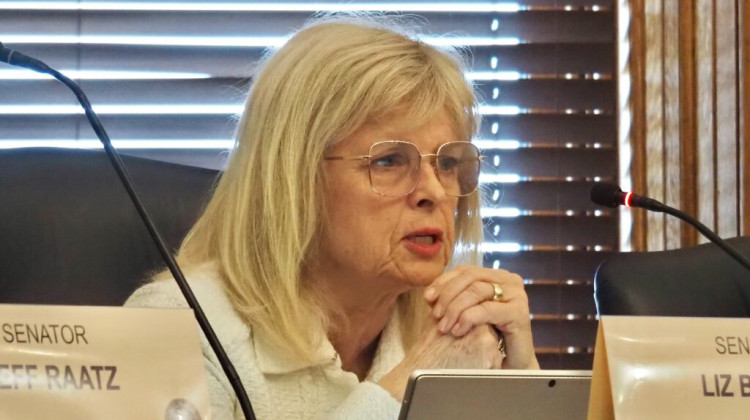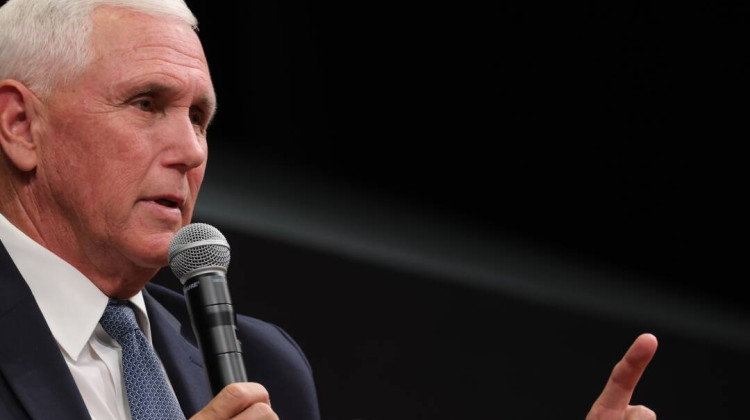
Sen. Mike Crider (R-Greenfield) began working on a bill to criminalize electronic tracking after a constituent was assaulted after being tracked with GPS technology.
Lauren Chapman/IPB NewsIt would be a felony to electronically track someone in many cases under legislation unanimously approved by the Indiana Senate Tuesday.
The bill arose from an incident last year in which a woman was viciously assaulted by her ex-boyfriend after he tracked her using GPS technology.
That incident happened in Sen. Mike Crider’s (R-Greenfield) district. His bill, SB 161, allows a judge to ban the use of tracking devices as part of a protective order. And it makes tracking someone electronically a felony, with some exceptions.
“So, we’re trying to do what we can to protect those people that have sought out protective orders and make sure that that order does, in fact, provide that layer of protection that they’re seeking,” Crider said.
Join the conversation and sign up for the Indiana Two-Way. Text "Indiana" to 73224. Your comments and questions in response to our weekly text help us find the answers you need on statewide issues throughout the legislative session. And follow along with our bill tracker.
Sen. Liz Brown (R-Fort Wayne) has an issue with one of the bill’s exceptions. Under the measure, family members can still legally track each other, unless they’re under a protective order.
“If a husband and wife are still able, without consent, to track each other and maybe they have a slightly acrimonious marriage – and they’re moving into divorce, but not yet – then that’s covered under this,” Brown said.
But Sen. Aaron Freeman (R-Indianapolis) said he thinks that exception is important.
"I can see countless examples of why parents want to track their kids," Freeman said. "I can see why parents would want to track their adult kids. I can see why children are going to want to track their then-elderly parents."
Other exceptions include putting a tracking device on one's own property, tracking someone who's incarcerated or part of parole, home detention or community corrections and a tracking device installed by a manufacturer in a motor vehicle.
The measure now heads to the House.
Brandon is our Statehouse bureau chief. Contact him at bsmith@ipbs.org or follow him on Twitter at @brandonjsmith5.
 DONATE
DONATE







 Support WFYI. We can't do it without you.
Support WFYI. We can't do it without you.